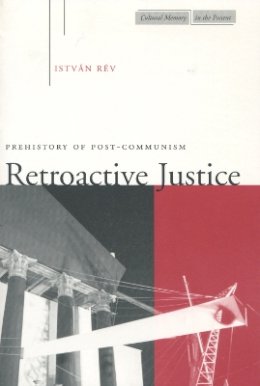
Retroactive Justice: Prehistory of Post-Communism
István Rév
This unorthodox scholarly work dissects the ghosts of history in order to analyze how the past—both recent and distant—haunts posterity, and in what ways the present disfigures the image of times gone by. The book presents a novel history of Communism from the perspective of its collapse, and inspects the world beyond the Fall in the distorting mirror of its imagined prehistory. Using a series of strange and darkly ironic stories, the subsequent chapters provide a close exploration of some of the essential objects of historical study: the name, the date, the dead, the relic, the pantheon, the court, the underworld, and the underground. The tension between vast distances, both in space and time, that Retroactive Justice covers, and the extremely focused analyses, provide an unexpected experience of writing and rewriting, visioning and revisioning history.
Product Details
About István Rév
Reviews for Retroactive Justice: Prehistory of Post-Communism
Chronicle of Higher Education "This is a beautifully written book....Rev is remarkable for his capacity somehow to reconcile his own history with the analytical detachment of a scholar of great brilliance."
London Review of Books "[Rev's] book is a superb introduction to the problems one encounters when approaching the extraordinarily complicated recent history of Hungary and Eastern Europe....History recovers a calling in this marvelous book, which deserves an audience far beyond area specialists."
American Historical Review "The hope is...that the readership of Retroactive Justice will acknowledge that it addresses an important lacuna in Western academic studies of the communist era in central eastern Europe, and as such it not only provides new knowledge about that era, but, more importantly, challenges conventional and linear perceptions of historical events."
Canadian Journal of History "Retroactive Justice is a collection of extraordinarily intelligent and profound studies about Hungarian society and its struggles to establish a comforting relationship with its twentieth-century past."
Austrian History Yearbook
